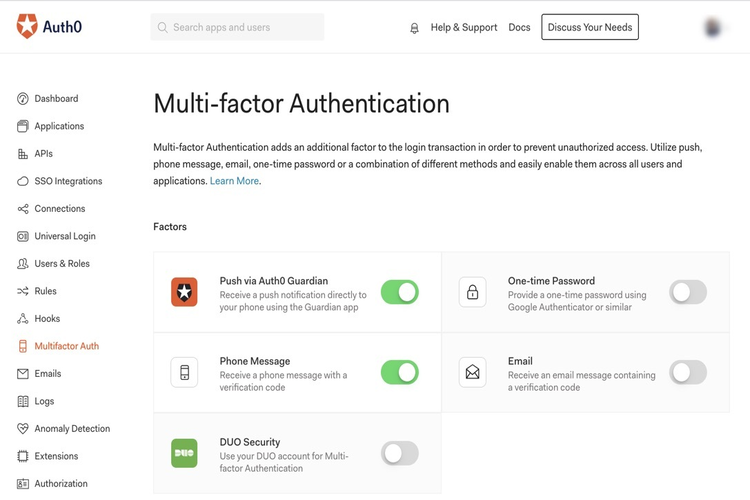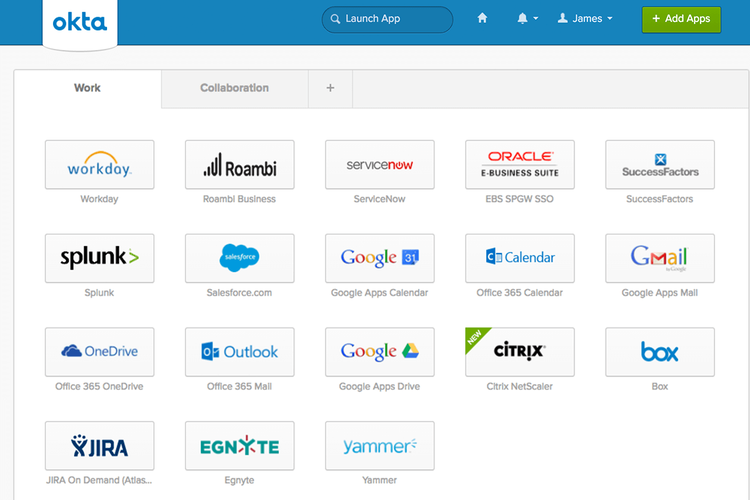In today’s cloud and mobile world, sensitive business data has become more distributed and no longer resides solely in the corporate network perimeter. Employees are accessing data and applications from almost anywhere over the internet and migrating to a zero trust security model helps protect your organization while benefiting from the advantages of digital transformation.
Zero trust is a holistic approach to securing modern businesses wherein the security policy is applied on the basis of context established through strict user authentication and least-privileged access. A sturdy zero trust framework leads to improved cyber threat defense, a better user experience and simpler network infrastructure.
Read on to learn about the zero trust security models that Auth0 and Okta offer.
Also read: Cloudflare vs Akamai: Zero Trust Platform Comparison
What is Auth0 Zero Trust?

Auth0 is a simple-to-use zero trust platform that offers numerous features, such as single sign-on (SSO), multi-factor authentication (MFA), universal login, passwordless authentication, Actions, secure machine-to-machine communication, and a breached password protection and prevention mechanism.
Key Differentiators
- Offers user management, access management, security, extensibility and authentication platforms.
- Universal login orchestrates SSO between numerous applications.
- SSO via enterprise federation, social networks, password authentication or traditional username enables users to log in a single time and access all authorized applications.
- Step-Up MFA permits you to restrict access to more confidential resources.
- Actions, Auth0’s next-generation extensibility platform, provides developers with more tooling and a better overall experience.
- You can simply handle authentication and authorization for non-interactive applications, such as the Internet of Things (IoT), trusted subsystem interactions, and daemons.
- Auth0 alerts you and your users when their login credentials have been leaked by a third-party breach and blocks such accounts until they change their password and set up MFA.
- Passwordless authentication enables a frictionless and secure experience for all parties.
Pricing: Auth0 offers a Free Plan for up to 7,000 active users and unlimited logins. The zero trust platform offers several B2B, B2C and B2E plans as well. Talk with an Auth0 expert for further details.
What is Okta Zero Trust?

Okta offers two solutions for zero trust security: Customer Identity, a customer identity and access management platform; and Workforce Identity, a platform that secures and enables your employees, partners and contractors.
Key Differentiators
- Provides more than 7,000 pre-built integrations, including Slack, Workday, Zendesk, Confluence, Amazon Web Services (AWS), Cerner, DocuSign, Box and HelloSign.
- These pre-built integrations help you securely adopt and deploy cloud-based SSO to your cloud applications.
- Adaptive MFA enables you to safeguard accounts and applications from fraud and credential theft.
- Centralized access management helps you extend cloud-based SSO and adaptive MFA to on-premises applications.
- Authentication-as-a-Service creates seamless and secure customer experiences.
- Gather, store and manage customer data to craft personalized customer experiences.
- Lifecycle management capabilities enable you to manage provisioning with automation.
- Okta Workflows makes it simple to automate identity processes at scale.
Pricing: You can try both platforms for free. Contact the Okta sales team by phone, email or live chat for product pricing details.
Auth0 vs Okta: What are the Differences?
We compared the zero trust security models of Auth0 and Okta:
| Features | Auth0 | Okta |
| User Authentication |  |
 |
| Access Policy Management |  |
|
| Access Policy Decision-Making and Enforcement |  |
 |
| Coarse and Fine-Grained Authorization Control |  |
|
| Adaptive Access and Trust Elevation |  |
 |
| Single Sign-On |  |
 |
| Session Management |  |
 |
| Access Event Logging and Reporting | ||
| Pricing Flexibility |  |
|
| Ability to Understand Needs |  |
 |
| Ease of Deployment |  |
 |
| End-User Training |  |
 |
| Service and Support |  |
 |
| Willingness to Recommend |  |
 |
| Overall Capability Score |  |
Choosing Zero Trust Platforms
A zero trust architecture follows the principle of ‘never trust, always verify’—no attempts are made to construct a trusted network. Instead, the very concept of trust is eliminated. Purchasing a zero trust solution is a necessity in today’s world of digital transformation. Before making a purchase decision, you should explore Okta and Auth0 in-depth. Go through the brochures of the products, compare pricing plans and scrutinize peer-to-peer (P2P) reviews—purchase a zero trust platform accordingly.
Read next: Steps to Building a Zero Trust Network
The post Auth0 vs Okta: Zero Trust Platform Comparison appeared first on Enterprise Networking Planet.

